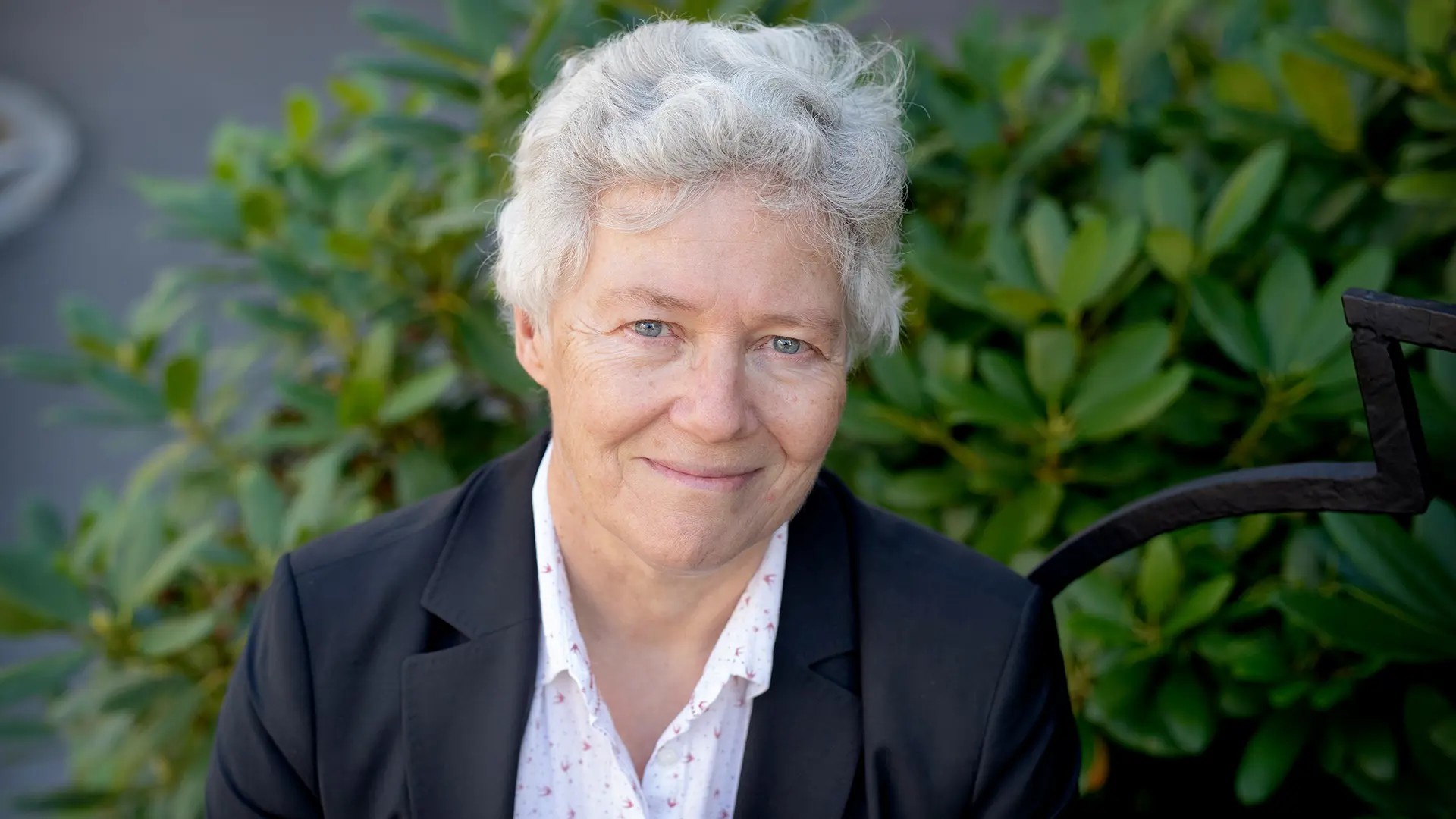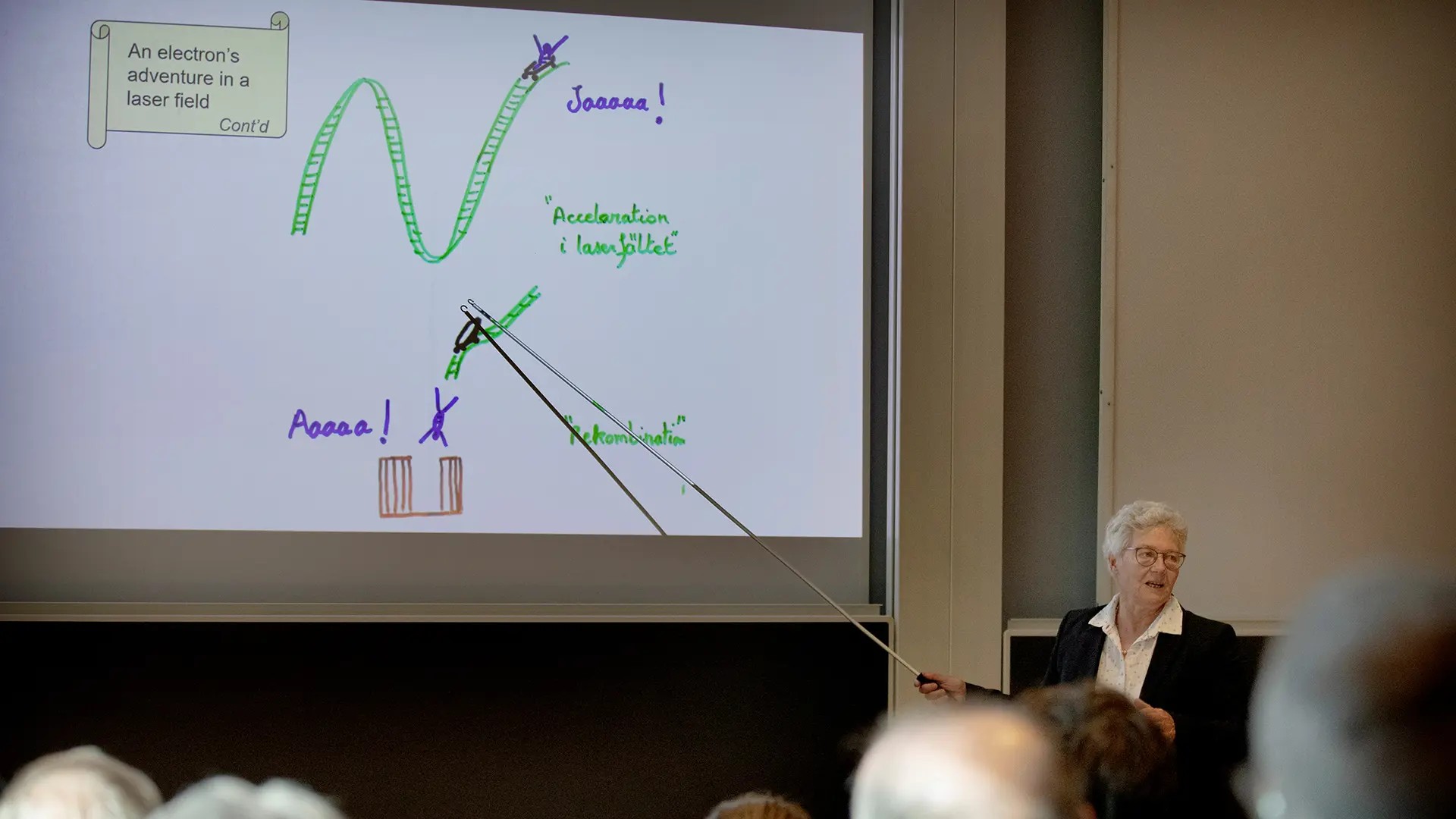

What really happens in a billionth of a billionth of a second? That is what professor Anne L'Huillier at Lund University has devoted her research career to shed light on, and for her discoveries she is now rewarded with the 2020 Lise Meitner Award.
“It means a lot to me. Lise Meitner is a strong female role model, something that is very important when you are a woman and conduct your research within a subject dominated by men," she says.
An attosecond is a trillionth of a second, and it is around laser pulses on that time scale that Professor Anne L'Huillier's research revolves. She has been at the forefront of research into ultrafast lasers for more than 30 years, and it is for those achievements and for paving the way for that research that she is now being awarded the Lise Meitner Award.
"It feels great that my research is being recognised in my new home country Sweden," she says.
Born in France, Anne L'Huillier has links to Sweden that go way back. In the mid-80s, she did a postdoc at Chalmers, and worked with professor Göran Wendin.
"It was a very rewarding period for me, and it has come to play a big role in my career," she says.
Laid the foundation for attosecond research
After some time back in France, she ended up at Lund University in the mid-90s, and for many years she has led a research group in atomic physics that studies the motion of electrons with the help of attosecond pulses. Her research group has helped lay the foundation for attosecond research, and enabled physicists and chemists to visualize the movement patterns of valence electrons.
In later years, she has also become one of several research leaders in the quantum computer project WACQT, organized by Chalmers University of Technology, where she once again has worked with Göran Wendin.
The lecture that Anne L'Huillier will give at the award ceremony is called "What happens in a billionth of a billionth of a second?" and concerns the ultra-short light pulses that her research group uses to study rapid processes and the movement of electrons in matter.
"What drives me as a researcher is learning," she says. “To still be able to learn new things all the time is very exciting. And to then be able to teach what I've learned is also very rewarding. In addition, it is very exciting when my research comes into use for science and for our society.”
-
Read more about the Lise Meitner Award, that is awarded by Gothenburg Physics Centre.